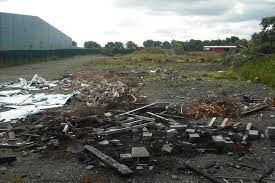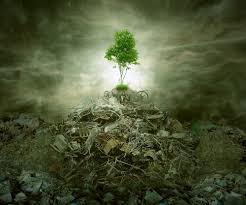Ever since the creation of man, or more markedly since he fell out of the favor of his creator, man had undertaken daily economic activities for his basic needs.
These needs continue to vary both in number and complexity according to man’s level of development which also leaves him with a multiplicity of options of items to use at a given time to satisfy the said needs.
In the process of satisfying our daily requirements of food, shelter, dressing, transport, entertainment, healthcare etc., we often tend to discard or throw away some of our previously valued belongings; household properties, implements, food, dress etc. which are of less use and are no longer needed.
Read Also : Classification of Solid Waste
Such materials which are no longer meeting the needs of the owner and are discarded are called wastes. Merriam- Webster defines waste as “refuse from places of human or animal habitation.” the world book dictionary defines waste as “useless or worthless material; stuff to be thrown away.” unfortunately, both definitions reflect a widespread attitude that does not recognize waste as a resource.

Zero-waste America defines waste as “a resource that is not safely recycled back into the environment or the marketplace.” Have you discarded any of your previously valued belongings today?
Read along as we further explore the definitions and concept of solid waste.
Definition of Solid Waste
Waste refers to anything that is worthless, useless and discarded. It is defined in Vermont Solid Waste Management Rules (2002), as a material that is discarded or is being accumulated, stored, or physically, chemically or biologically treated prior to being discarded or that has served its originally intended use and is normally discarded or that is a manufacturing or mining by-product and is normally discarded.
It further went down to define solid waste as any discarded garbage, refuse, sludge from a waste treatment plant, water supply plant, or pollution control facility and other discarded material including solid, liquid, semi-solid, or contained gaseous materials resulting from industrial, commercial, mining, or agricultural operations and from community activities but does not include animal manure and absorbent bedding used for soil enrichment or solid or dissolved materials in industrial discharges.
Solid waste in this context simply refers to tangible and non-free flowing discarded materials arising from human activities.
Read Also : Types of Solid Waste and Sources of Solid Waste
Business dictionary refers to it as “solid or semisolid non- soluble material (including gases and liquids in containers) such as agricultural refuse, demolition waste, industrial waste, mining residues, municipal garbage and sewage sludge.
Other examples of solid wastes include waste tires, scrap metal, latex paints, furniture and toys, domestic refuse (garbage), discarded appliances and vehicles, uncontaminated used oil and anti-freeze, empty aerosol cans, paint cans and compressed gas cylinders, construction and demolition debris, asbestos etc.

